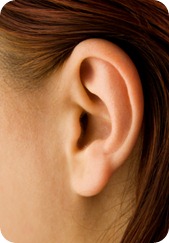Oct 21st, 2011 by Tori Hudson, N.D.
A recent study was published reporting on the results of using melatonin for the treatment of chronic tinnitus (ringing in the ears) in adults. This was a randomized, double-blind, cross over trial in which one group was given 3 mg of melatonin nightly and the other group was given a placebo nightly for 30 days. Then a 1 month washout where nothing was taken followed by each group crossing over into the opposite treatment arm for 30 days. A total of 61 individuals completed the study. A significantly greater decrease in tinnitus scores on an audiometric test and self rated tinnitus was observed after treatment with melatonin compared to placebo. Men who had bilateral tinnitus, no prior tinnitus treatment, absent depression and/or anxiety and greater pretreatment tinnitus scores were most associated with a positive response and had the greatest improvement to the melatonin.

Commentary: While the percentage of women with tinnitus is less than men, women do experience unique influences that can cause or worsen their tinnitus which are not experienced by men. Hormonal influences such as puberty, the menstrual cycle, pregnancy, hormonal birth control, hormone replacement therapy and menopause are such influences. It appears that there is a link between the menstrual cycle and tinnitus and some women report that their tinnitus is worse during their premenstrual syndrome time. One survey found that 62% of women who had tinnitus before their pregnancies had it worsen during the pregnancy and 66% worsened after childbirth. Of course, hormonal changes are not the only thing going on during pregnancy and postpartum. Other changes that could influence and worsen tinnitus during these times could be lack of sleep, fatigue and stress.
Otosclerosis is a disease of bone growth where the small bones in the middle ear no longer are able to conduct signals to the inner ear, resulting in hearing loss. It affects both women and men but can become worse during pregnancy. Tinnitus is often associated with otosclerosis.
Hormone replacement therapy (HRT), specifically the synthetic progestin used in combination with estrogens can possibly exacerbate tinnitus. There have been case repots of onset of tinnitus shortly after starting HRT. Other theories postulate that side effects of HRT experienced by some women, such as fluid retention, depression, headache, dizziness, insomnia and blood pressure changes could be the cause of worsening of the tinnitus.
Tinnitus is also more common in the 40’s, 50’s and 60’s, which then may mean it is more age related than specifically perimenopause and menopause related. However, it is still possible that the fluctuations in estrogen/progesterone and/or the hot flashes and mood changes of this time of a woman’s life could affect tinnitus.
Whatever the cause, the use of melatonin 3 mg in the evening, is a reasonable and safe supplement to try for the challenging problem of tinnitus.
Reference
Hurtuk A, Dome C, Holloman C, et al. Melatonin: Can it stop the ringing? Annals of Otology, Rhinology and Laryngology 2011;120(7):433-440.
Posted in Dietary Supplements, General


